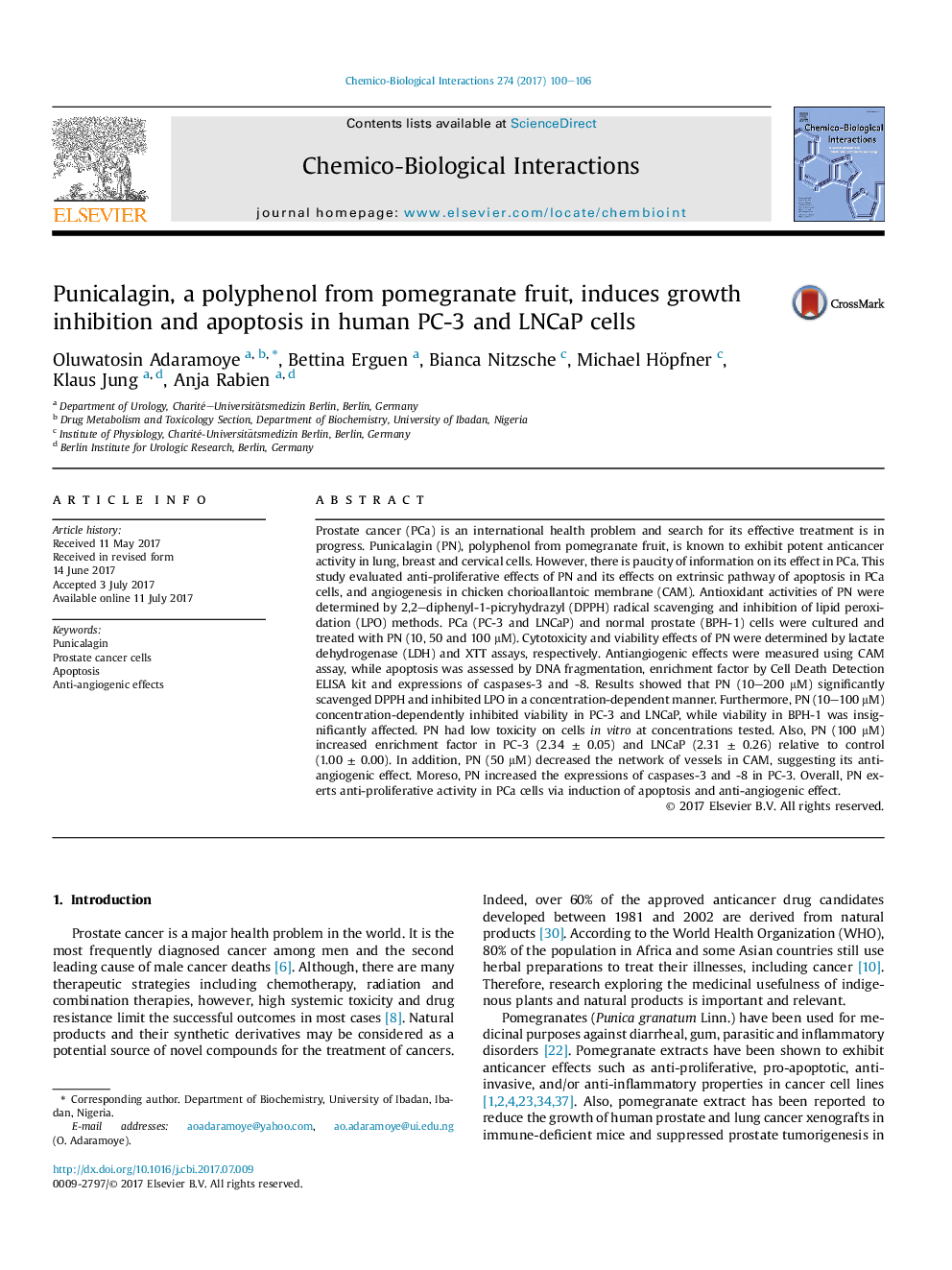| کد مقاله | کد نشریه | سال انتشار | مقاله انگلیسی | نسخه تمام متن |
|---|---|---|---|---|
| 5559280 | 1561568 | 2017 | 7 صفحه PDF | دانلود رایگان |

- Punicalagin significantly scavenged DPPH and inhibited lipid peroxidation.
- Punicalagin (100 μM) increased enrichment factor in PC-3 and LNCaP using Cell Death Detection ELISA.
- Punicalagin exerts anti-proliferative activity in prostate cancer cells via induction of apoptosis.
Prostate cancer (PCa) is an international health problem and search for its effective treatment is in progress. Punicalagin (PN), polyphenol from pomegranate fruit, is known to exhibit potent anticancer activity in lung, breast and cervical cells. However, there is paucity of information on its effect in PCa. This study evaluated anti-proliferative effects of PN and its effects on extrinsic pathway of apoptosis in PCa cells, and angiogenesis in chicken chorioallantoic membrane (CAM). Antioxidant activities of PN were determined by 2,2-diphenyl-1-picryhydrazyl (DPPH) radical scavenging and inhibition of lipid peroxidation (LPO) methods. PCa (PC-3 and LNCaP) and normal prostate (BPH-1) cells were cultured and treated with PN (10, 50 and 100 μM). Cytotoxicity and viability effects of PN were determined by lactate dehydrogenase (LDH) and XTT assays, respectively. Antiangiogenic effects were measured using CAM assay, while apoptosis was assessed by DNA fragmentation, enrichment factor by Cell Death Detection ELISA kit and expressions of caspases-3 and -8. Results showed that PN (10-200 μM) significantly scavenged DPPH and inhibited LPO in a concentration-dependent manner. Furthermore, PN (10-100 μM) concentration-dependently inhibited viability in PC-3 and LNCaP, while viability in BPH-1 was insignificantly affected. PN had low toxicity on cells in vitro at concentrations tested. Also, PN (100 μM) increased enrichment factor in PC-3 (2.34 ± 0.05) and LNCaP (2.31 ± 0.26) relative to control (1.00 ± 0.00). In addition, PN (50 μM) decreased the network of vessels in CAM, suggesting its anti-angiogenic effect. Moreso, PN increased the expressions of caspases-3 and -8 in PC-3. Overall, PN exerts anti-proliferative activity in PCa cells via induction of apoptosis and anti-angiogenic effect.
Journal: Chemico-Biological Interactions - Volume 274, 25 August 2017, Pages 100-106